For his new drama series for BBC One, writer Peter Bowker (The A Word, Monroe etc) has taken as his canvas no less than a panorama of Europe in 1939, just as World War Two is breaking out. His principal characters include Harry Chase, a young man from a wealthy family who’s in love with Manchester factory girl Lois Bennett, the Polish Tomaszeski family whose lives are upended by Germany’s invasion of their country, and Berlin-based American journalist Nancy Campbell, who’s trying to interpret the European turmoil for her listeners on American Radio International.
Developing all these different strands across a mere seven episodes looks like a tall order (novelists like Dumas and Tolstoy could handle challenges on this scale, but they’d allot themselves 1200 pages to do it). This opening episode included plenty of action and rapid changes of scenery, but the characterisations have a cardboard cutout quality about them, as if it’s faster and easier to give viewers a familiar stereotype than try to build complex individuals from scratch.
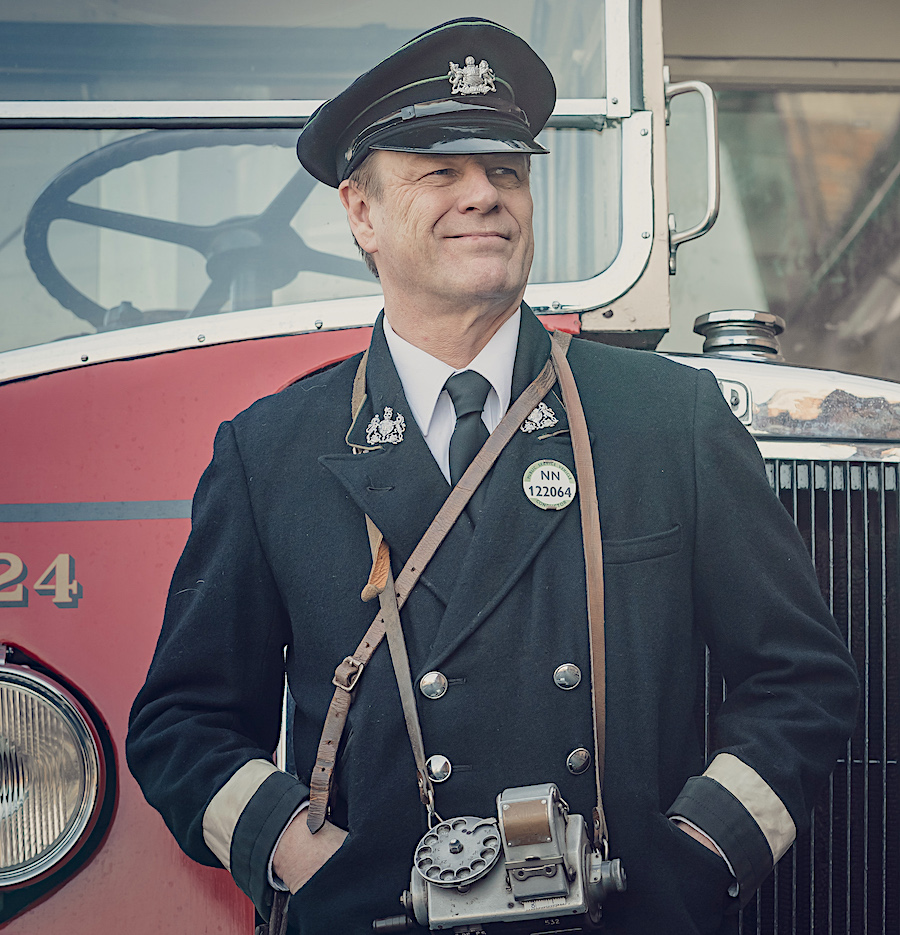 Thus, we have Sean Bean (pictured right) playing Lois’s father Douglas – a Manchester bus conductor – as an almost Pythonesque caricature of working class stoicism, wearily trying to cope with his criminally-inclined son Tom (Ewan Mitchell) while doting on his daughter Lois (Julia Brown). “You’re just like yer mam y’know… the way you are, the fight in you,” he tells her rheumily. Bowker’s message is that war is hell and the less well-off suffer most, and Douglas knows this, since he suffers debilitating flashbacks to his experiences on the Western Front in the Great War. “Shellshock,” says Lois. “It’s nowt to be ashamed of.” Douglas is now a pacifist who sells Peace News outside the local factory gates, and the looming spectre of another war is filling him with dread.
Thus, we have Sean Bean (pictured right) playing Lois’s father Douglas – a Manchester bus conductor – as an almost Pythonesque caricature of working class stoicism, wearily trying to cope with his criminally-inclined son Tom (Ewan Mitchell) while doting on his daughter Lois (Julia Brown). “You’re just like yer mam y’know… the way you are, the fight in you,” he tells her rheumily. Bowker’s message is that war is hell and the less well-off suffer most, and Douglas knows this, since he suffers debilitating flashbacks to his experiences on the Western Front in the Great War. “Shellshock,” says Lois. “It’s nowt to be ashamed of.” Douglas is now a pacifist who sells Peace News outside the local factory gates, and the looming spectre of another war is filling him with dread.
We don’t yet know how Lois came to be having a romantic liaison with Harry (Jonah Hauer-King), but the episode opened with them heckling Oswald Mosley at a Blackshirt rally and being thrown into the street for their pains (in his search for “relevance”, another of Bowker’s not-very-subtle messages is that fascism is on the march again). To bang home the yawning class gulf between them, Harry’s widowed mother Robina is played by Lesley Manville as a repressed, buttoned-up ice-maiden, contemptuous of the lower orders and an enthusiastic Mosley supporter (“it’s a rare man indeed who can look that handsome in a polo neck,” she smirks). Robina is determined that the bus conductor’s daughter will not be leading her son and heir astray. “You’re a bloody snob!” Lois tells her. “I’m an elitist, certainly,” declares Robina haughtily.
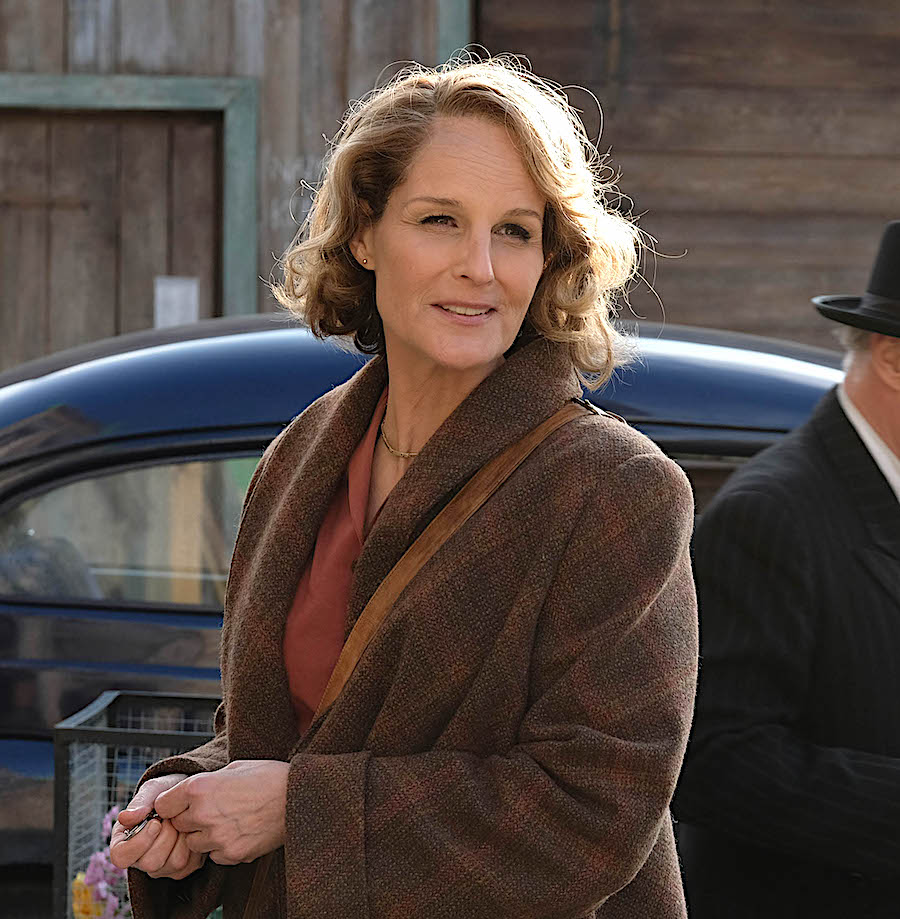 The Polish connection arose when Harry was sent to work in the British Embassy in Warsaw as a translator. Here, he soon became enamoured of waitress Kasia, but with the Germans sending their panzers into Danzig and the Luftwaffe blackening the skies over Warsaw, it was time to get the hell out. Harry likes Kasia so much that he has already married her, but this was only because Nancy the broadcaster (played by a gaunt-looking Helen Hunt, pictured above) told him that was the only way he could get Kasia out of Poland. Meanwhile, Nancy’s worried about her nephew Webster, who’s a doctor in Paris, but he’s more preoccupied by a handsome jazz saxophonist than with any prospect of German tanks on the Champs-Elysées.
The Polish connection arose when Harry was sent to work in the British Embassy in Warsaw as a translator. Here, he soon became enamoured of waitress Kasia, but with the Germans sending their panzers into Danzig and the Luftwaffe blackening the skies over Warsaw, it was time to get the hell out. Harry likes Kasia so much that he has already married her, but this was only because Nancy the broadcaster (played by a gaunt-looking Helen Hunt, pictured above) told him that was the only way he could get Kasia out of Poland. Meanwhile, Nancy’s worried about her nephew Webster, who’s a doctor in Paris, but he’s more preoccupied by a handsome jazz saxophonist than with any prospect of German tanks on the Champs-Elysées.
At least World on Fire goes by so fast that it’s difficult to get bored, but it’s more melodrama than drama. More depth and less breadth might have been advisable.

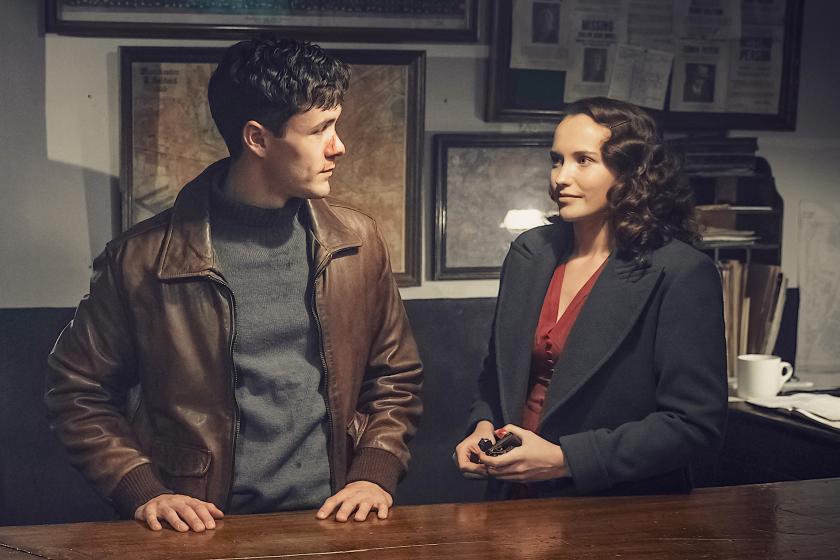
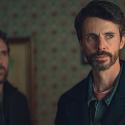


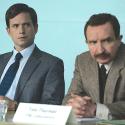






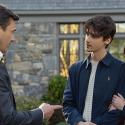

Comments
Add comment